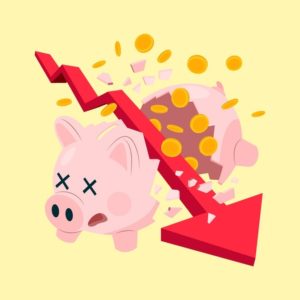Chapter 13 Bankruptcies and When They are Most Appropriate
Filing bankruptcy is not something you can do on a whim. It is a serious legal matter. There are different types of bankruptcy, each with advantages and disadvantages. A Chapter 13 petition for bankruptcy, for instance, will allow you to restructure or reorganize your finances. Filing for bankruptcy and proceeding with restructuring will enable you to bring current payments for secured loans. This can stop foreclosure or repossession of collateral (such as your home, car, or other personal property), which is a common reason why people opt to file for bankruptcy under Chapter 13.
If you filed for bankruptcy under this chapter, you will be given a repayment period of three or five years. You will also be protected by the federal court through the automatic stay bankruptcy protection. Under bankruptcy laws, however, not everyone can proceed with filing Chapter 13 bankruptcy cases (such are dubbed as the wage earner bankruptcy because a low-income earner may not be qualified to file). Before you can declare bankruptcy, certain requirements must be met:
- Monthly income must be regular
- Tax filings must be current
- The total secured debt must be less than $1,184,200
- The total unsecured debt must be less than $394,725
- No Chapter 13 filing in the last two years
- No Chapter 7 filing in the last four years
- No bankruptcy petition filed and dismissed (because of failure to appear or comply with orders from the court) in the last 180 days
 Before you begin with your declaration of bankruptcy, meet first with a lawyer, and discuss finances and debt reorganization plans with credit counselors. Your bankruptcy attorney will help with paperwork and bankruptcy forms that you must submit to your trustee. The goal is to be allowed to repay secured and unsecured debts while keeping your assets and eventually have certain debts forgiven.
Before you begin with your declaration of bankruptcy, meet first with a lawyer, and discuss finances and debt reorganization plans with credit counselors. Your bankruptcy attorney will help with paperwork and bankruptcy forms that you must submit to your trustee. The goal is to be allowed to repay secured and unsecured debts while keeping your assets and eventually have certain debts forgiven.
You must then work on your repayment plan and submit your bankruptcy petition so you can benefit from the automatic stay (which would prevent lenders from attempting to collect or even contact you).
Submit to the bankruptcy court your proposed payment plan (14 days after filing) and work on making payments. Before bankruptcy proceedings officially end, you will be asked to complete a debtor education course.
As in above, declaring bankruptcy can be a long, complicated procedure. Getting a trusted bankruptcy lawyer would help you get familiar with the different types and the actual bankruptcy process.
So what are the reasons for filing reorganization bankruptcies? If you will answer yes to the following questions, a bankruptcy Chapter 13 will likely be your best option:
- Do you want to keep certain assets or personal property?
- Do your debts include student loans, child support, alimony, or recent taxes that will likely not be wiped out by a Chapter 7 bankruptcy discharge?
- Are you behind on your mortgage payment but would want to make up?
- Do you have a co-signer (on any account in arrears) who you want to be protected while you pay off what you owe?
Filing bankruptcy under Chapter 13 would likely take longer than other forms of consumer bankruptcy. While it will not be discharging credit card debt, medical debt, or personal loans, the above are enough reasons why some bankrupt individuals would opt for it. Furthermore, even if your Chapter 13 bankruptcy filing will be on credit reports for the next seven years, your credit scores will still gradually improve, especially with the fresh start that it will give you.
If you are considering bankruptcy, want to know how to file properly, or if you have questions on your debt-relief options, contact our law firm. Call us at Cutler Bankruptcy for a consultation.


